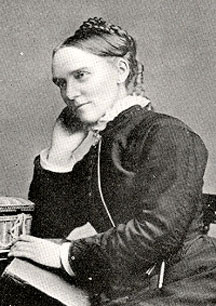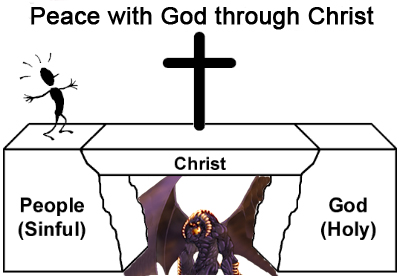Jesus promised to give his followers supernatural peace:
I’m leaving you with a gift — peace of mind and heart. And the peace I give isn’t like the peace the world gives. So don’t be troubled or afraid (John 14:27).
After Jesus ascended to heaven, he gives this peace through the mediation of the Holy Spirit. Peace is one aspect of that which the Spirit produces in our lives (Gal 5:22).
The inner peace given by God isn’t like the peace provided by the world, according to Jesus (John 14:27). It isn’t peace that depends upon outward circumstances or inward rationalizations. Indeed, God’s peace often comes when events or reasons would provide just cause for worry. As Paul notes, God’s peace “is far more wonderful than the human mind can understand” (Phil 4:7).
If you’ve never experienced this kind of peace, all of this talk can sound rather dreamy and unrealisitic. But millions upon millions of Christians have known supernatural, inexplicable peace precisely in situations that would seem to demand fear and distress. The great hymn writer Charles Wesley, who wrote such beloved songs as “Hark! The herald Angels Sing,” lived a full life of service to Christ. Early in his 79th year, however, his health began to falter. As sickness dominated his body, Wesley knew that he would soon die. His doctor, who regularly visited his bedside during the last days, described Wesley’s attitude in the face of death:
He possessed that state of mind which he had been always pleased to see in others — unaffected humility, and holy resignation to the will of God. He had no transports of joy, but solid hope and unshaken confidence in Christ, which kept his mind in perfect peace.
Lest you think that only the unique heroes of Christian history have such peace when death approaches, I have sat with many ordinary saints in the hours before their passing. These also known the perfect peace that once filled the heart of Charles Wesley.
Obviously, I have not yet confronted the imminence of my death. I’m hoping to delay this experience for a quite few more years. But I have known the peace of God that is “far more wonderful than the human mind can understand.” Such peace first came to me when I was in junior high. My father worked as a computer analyst in the aerospace business in Southern California. After Americans finally landed on the moon, zeal for space exploration waned and federal funding dried up. My dad lost his job and remained out of work for many months. The expenses associated with supporting a family of six continued, however. Before too long my family’s financial situation was very bleak. I was panicked, afraid that we would lose our home and be forced to move away from our friends and family. I felt afraid as I had never felt before. My world seemed to be crumbling before my very eyes.
I vividly remember lying awake one night, envisioning the worst case scenario for my family. I just couldn’t escape from the grip of fear. In desperation I cried out to God for help. “Please take care of us,” I pleaded, “help Dad to get a job. Don’t make us move. Help us!” In that moment I sensed God’s lavish, comforting presence as I had never known it before. Though I didn’t receive any reassurance about my family’s financial situation, I felt utterly, uniquely, supernaturally peaceful. My worries evaporated in the warmth of God’s love for me. Without knowing what lay ahead for my family, I knew beyond any doubt that God would take care of us.
In that watershed moment of my life I experienced for the first time the gift of incomprehensible peace, that which I couldn’t understand and which really made no sense at all. I also learned that such peace comes, not by human effort, but by God’s grace as we turn our hearts to him. The prophet Isaiah understood this truth when he said to the Lord, “You will keep in perfect peace all who trust in you, whose thoughts are fixed on you!” (Isa 26:3). Paul reiterated this same thought, making more explicit the connection between fixing our thoughts on God and prayer:
Don’t worry about anything; instead, pray about everything. Tell God what you need, and thank him for all he has done. If you do this, you will experience God’s peace, which is far more wonderful than the human mind can understand. His peace will guard your hearts and minds as you live in Christ Jesus (Phil 4:6-7).
What a marvelous promise! What an astounding reality!
 Frances Havergal lived in the mid-19th century. A faithful and talented Christian, she wrote many beloved hymns, including “Take My Life, and Let It Be Consecrated.” her relatively short life was filled with difficult challenges. When she was eleven, her mother died. Shortly thereafter her father remarried. Frances’s stepmother came between her and her father, causing deep hurt to the girl. As a young adult, Frances became chronically ill. Even to get up from her bed was painful. Yet she continued to live actively, especially in her song writing ministry. During one of her periods of illness, she composed these words:
Frances Havergal lived in the mid-19th century. A faithful and talented Christian, she wrote many beloved hymns, including “Take My Life, and Let It Be Consecrated.” her relatively short life was filled with difficult challenges. When she was eleven, her mother died. Shortly thereafter her father remarried. Frances’s stepmother came between her and her father, causing deep hurt to the girl. As a young adult, Frances became chronically ill. Even to get up from her bed was painful. Yet she continued to live actively, especially in her song writing ministry. During one of her periods of illness, she composed these words:
Like a river glorious,
Is God’s perfect peace,
Over all victorious,
In its bright increase;
Perfect, yet it floweth,
Fuller ev’ry day;
Perfect, yet it groweth,
Deeper all the way.Stayed upon Jehovah,
hearts are fully blessed;
Finding, as he promised,
Perfect peace and rest.
Perfect peace in the midst of severe physical pain, that’s beyond our comprehension. It’s a gift from God.
This post is part of a series: Seeking the Peace of Christ: Peacemaking and Christianity. You can read or link to the series by clicking on the series title.

